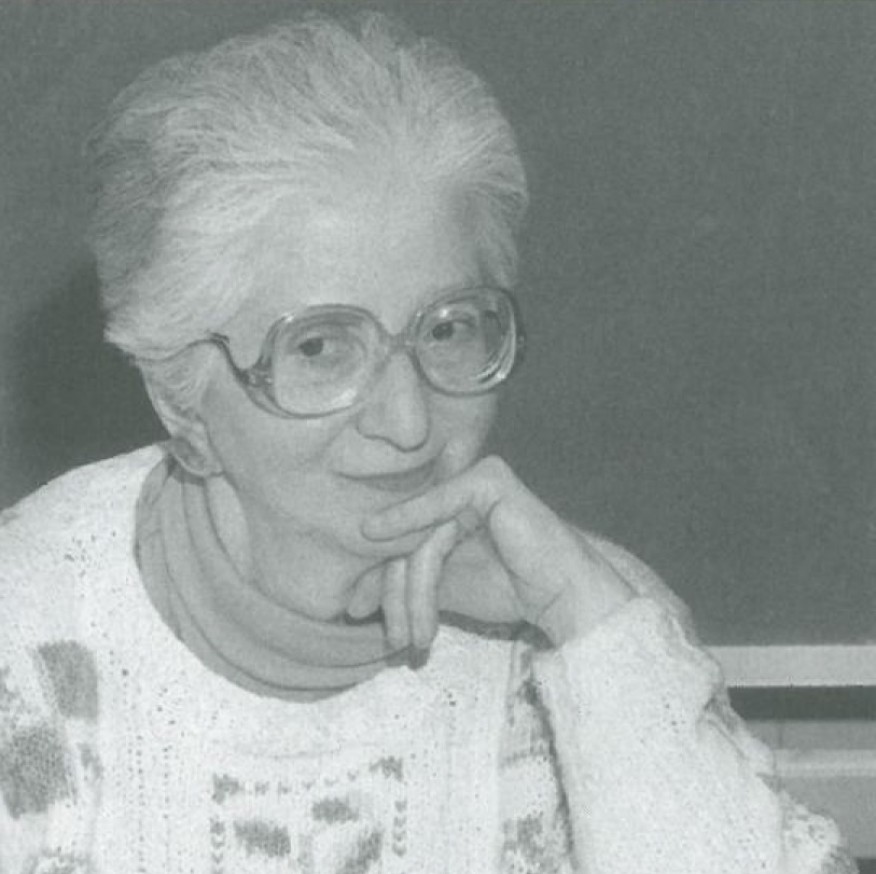Sheila Feld earned her A.B. from Brooklyn College in New York Ciry, her Masters and Ph.D. in Social Psychology at the Universiry of Michigan, and joined the UM School of Social Work in 1969 as an Associate Professor with a joint appointment as a researcher at the UM Institute for Social Research (ISR).
Before joining the School, Feld served at the National Institute of Mental Health in an experimental unit called the Mental Health Study Center. According to Feld, it was designed as a model comprehensive community mental health center, which included a research and evaluation unit in which she worked. "Although it never achieved its goal of combining state-of-the-art treatment and research," she notes, "being a part of it was probably related to my considering joining the SSW rather than a strictly academic psychology department and my continuing interest in linking social science theory and research to practice." She notes that she had worked at the ISR before and after completing her Ph.D., and "was interested in trying to combine returning to ISR with an academic position. Martin Gold (a colleague at ISR) and I developed a research proposal that seemed likely to be funded. I was contacted by the School of Social Work because they had an opening that they thought would be appropriate. At that point, I hadn't thought about social work."
It's to the benefit of many students that Feld accepted the position. Her career spans more than thirry years, during which she served as Assistant Dean for a decade (the first woman to hold the position in the School), director of the Joint Doctoral Program in Social Work and Social Science, and mentor to countless students.
"My knowledge was broadened and brought to life by contact with students in different disciplines, with different interests, and varying backgrounds," says Feld. When she was a graduate student, she worked at ISR with Joe Veroff and Gerry Gurin who "not only mentored me in terms of helping me develop my research and writing skills, but also were models to me (as was Jack Atkinson, who is now Professor Emeritus of Psychology and was chair of my dissertation committee) of how you work with students in terms of making them an integral part of your research endeavor and respecting their contributions. I was a graduate student when I first started working with them, and when the book (Americans View their Mental Health) came out, I hadn't yet finished my Ph.D."
Feld found teaching in social work interesting because of the students' diversity. "There were many who had been working for a long time or had families-they had a very realistic perspective on their education. They were committed to becoming professional social workers and wanted to learn what was necessary to do that. They made me think about why theory was important, and why various research and theoretical issues made a difference to practicing social workers."
Feld was co-director of the training grant Social Research Training on Applied Issues of Aging through the National Institute on Aging, with John Tropman and Ruth Dunkle. "Originally, John Tropman, Harold Johnson, and I developed the grant-it seemed like a good opportuniry to meld the interdisciplinary nature of the doctoral program with Gerontology. A lot of faculty in SSW, as well as in other departments and colleges, collaborated with us, and we put together a training proposal that was funded for five years that Tropman and I codirected. It's been funded, now, for nearly 25 years-we've been quite successful, I think, in creating a sort of communiry of scholars who meet together regularly to talk about applied research related to aging."
Feld is respected as a faculry member who accepted leadership positions within the School and the Universiry willingly. Just before her retirement, she was named recipient of the University of Michigan Senate Advisory Committee on University Affairs Distinguished Faculty Governance Award, which recognizes outstanding contributions to the faculty governance system at the University.
Feld retired from the School in 2000. During her retirement celebration, the naming of the Sheila Feld Collegiate Professorship of Social Work was announced. Subsequently, Robert Joseph Taylor was appointed to the professorship. "I have no regrets about retiring - I am continuing to do some writing and research, but at a slower pace. When I retired, I had several doctoral students, but I have just one left, and that is a regret in a way. I enjoy working with the doctoral students, and when she finishes, that will be the end. But I have more time to do other things."
Written by Terri D. Torkko
